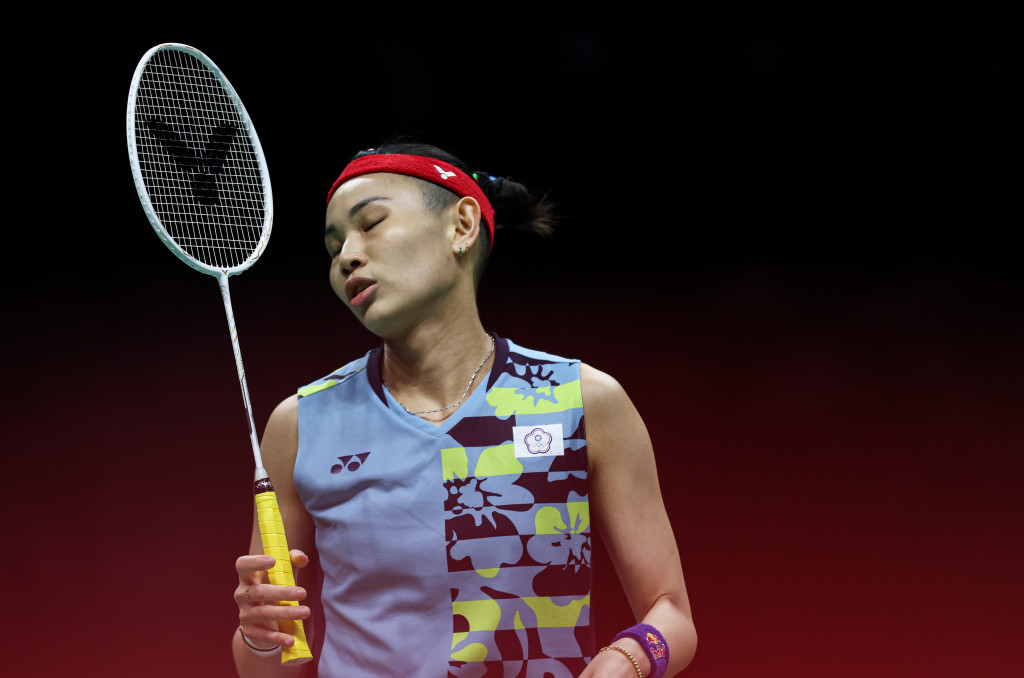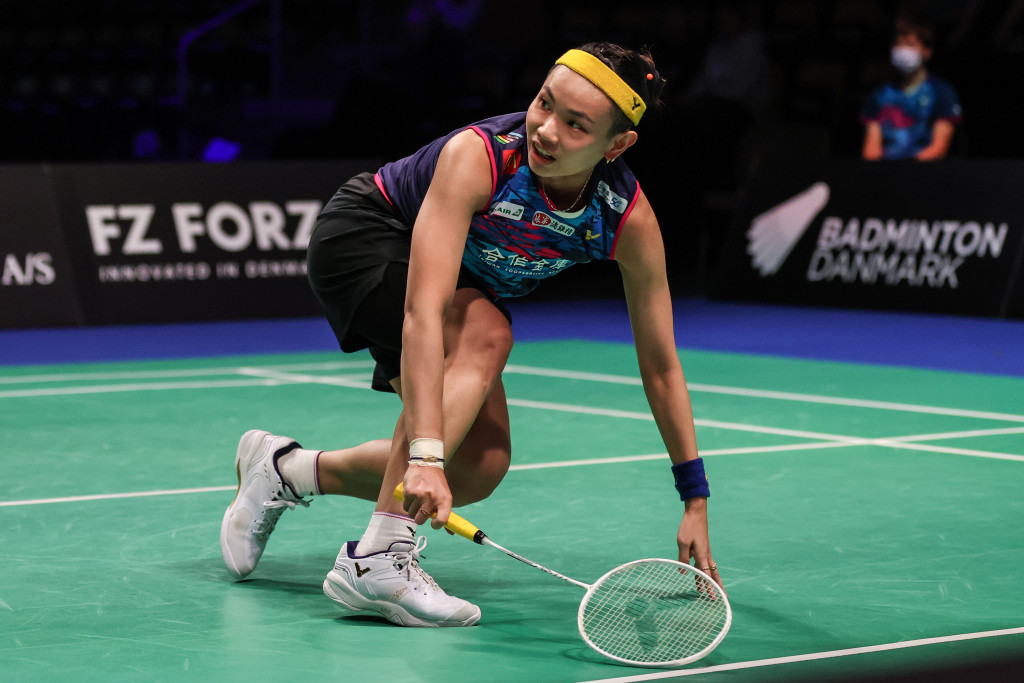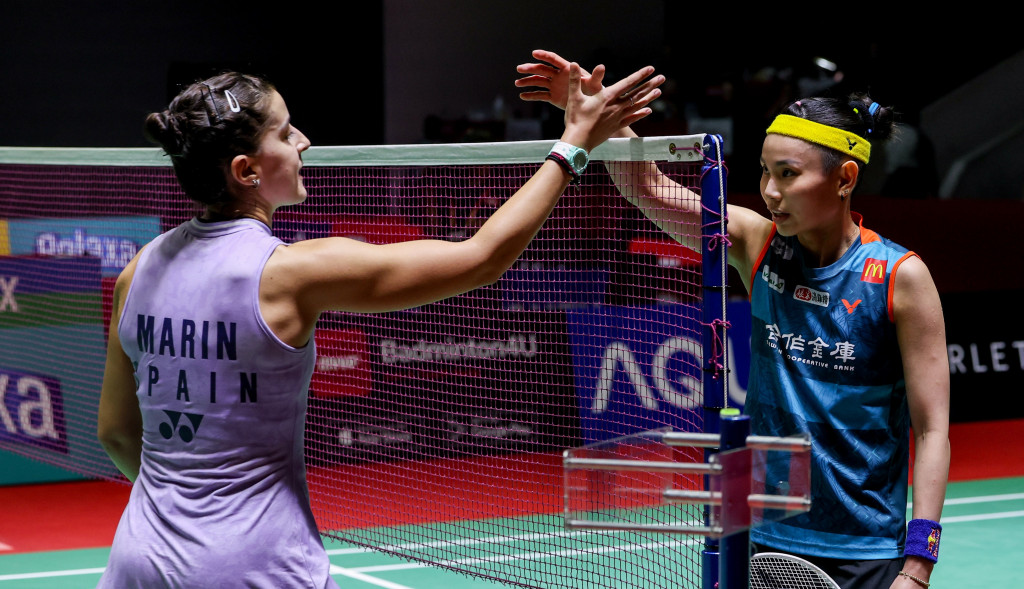
Video Prep Just Not TTY’s Thing
An Se Young does it. So does Carolina Marin. So too, conceivably, does every player on the circuit – video analysis as part of match preparation: looking for flaws and patterns in opponents and one’s own, building up a visual bank of cues that might make a difference between win and loss.
Tai Tzu Ying, however, does not. Studying match videos is just not her thing.
“I’ve never watched any video as part of preparation,” says the maverick. “I don’t watch myself; I don’t watch anyone else either.”
But why not?
There is only one variable in Tai Tzu Ying’s mind when it comes to performance – the number of her errors. To her, the equation is simple: her chances of victory are inversely proportional to her errors. Somewhat surprisingly, the performance of an opponent doesn’t count in this equation.

“The outcome of a match depends on my error count,” says Tai. “When I lose, I know the aspects I didn’t do well in. So if I watch a past video, all I can learn is that I need to bring down my errors. Knowing this will not help my game, because it’s still up to myself. If I can do the things I want to do or have to do, I can put up a strong challenge. If I watch a video and yet make a lot of errors, it’s not going to help.
“It all depends on me.”
But her chief opponents, the ones who have beaten her consistently – An Se Young, Akane Yamaguchi, Chen Yu Fei and Carolina Marin – are all evolving. How was Tai going to keep up if she didn’t study their game?
“Generally a player will not change too much,” she responds. “For example, An Se Young used to rally a lot, but now she tries to attack more often. Chen Yu Fei is also similar to An Se Young, they didn’t attack so much earlier, but now they do a lot more. Akane is a more attacking player.
“Players like Akane, An Se Young and Chen Yu Fei are playing very fast now, so it’s more important for me to prepare myself than to understand them.
“I’ve played them many times, I know them quite well. An Se Young is very consistent, Akane is strong in attack and fast… so generally, I understand them. But first and foremost is to prepare myself. I tend to make a lot of mistakes, so I need to reduce my errors and increase my speed.
“I have to prepare myself before I think of my opponent. The number of errors I make in a match is high, so I have to keep my errors in check before I think of a solution against my opponents. For instance, if I can’t keep the shuttle inside the lines, whatever else I do makes no difference.
“If I cannot keep my errors in check, I cannot challenge them.”
Fundamentally, like a gifted student who rejects cramming and homework, Tai appears to go entirely by talent and instinct and memory.

“I need to get a feel of the environment before I get on court,” she agrees. “I feel my condition varies depending on the day; every day I feel different. If I feel that my form isn’t good on that day, I have to be more conservative – more safe with my shots. If my feel isn’t good, all my shots will be out.
“The problem – and the solution — is in myself.”
It is no surprise that this view is the outlier in a competitive world where any advantage, however miniscule, is sought. Tai’s opponents are quite clear about how much they value video analysis.
Carolina Marin, for instance, called it “really important” for strategising against opponents.
“I’ve always done it. Mainly we see my opponents’ videos, but of course my coaches see how I can improve on court. It’s their job to see how I play, what things I need to improve, and then we have to prepare for a match.”

Marin smiled about Tai’s reluctance to watch videos.
“Maybe if she wants to win, she has to do it.
“But it’s her way, of course. You can see her skill is amazing, and she’s lucky to have that. Maybe because she plays more on instinct, and maybe that’s why she doesn’t need it. But for myself, I need it.
“We cannot change a lot, because a game is a game, but we try every time to keep improving, to have something new. You need to keep improving, to have new things when you get on court, so your opponent also gets surprised about the new things that you improved on. And video analysis is part of the homework.”
An Se Young, who is having an unbelievable season, sets much store in learning from videos.
“I have a professional coach for video analysis,” the Korean says. “Before the match the coach will send me the video, and I will watch it while preparing.”
How much, in terms of deceptive skill, has she picked up by watching Tai Tzu Ying?
“Every player has their own style,” says An Se Young.
“I’m not particularly watching for hand skill; I’m concerned about footwork and movement. I watch Tai Tzu Ying’s videos and since she moves fast, I have to ensure I’m faster than her.”
BWF World Tour News

Gideon: A Relentless Star Bids Goodbye
21 March 2024
Smashing Stats: Swiss Open 2024
20 March 2024
Where To Watch: YONEX Swiss Open 2024
20 March 2024
Swiss Open: Marin Heads Strong Field
19 March 2024
All England: Three-Decade Wait Ends
18 March 2024
Orleans Masters: Teen Star Miyazaki Eyes Bigger Victories
18 March 2024
All England: Nine Years On, Marin Returns to the Top
17 March 2024

























